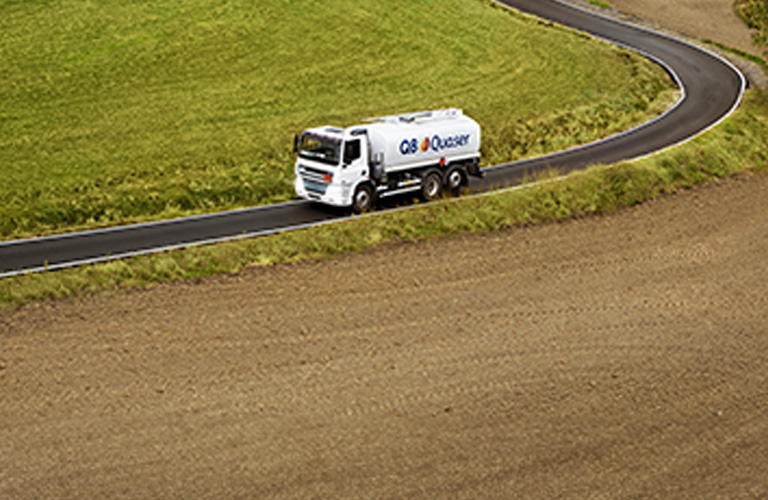


Q8 Quaser Diesel
Another product obtained from the primary distillation of crude oil is diesel. Its quality depends on the characteristics of the crude oil it originates from and the production techniques used (cracking, visbreaking, etc.).
For a long time, diesel was used almost exclusively for heavy vehicles. However, in Italy and worldwide, its use has been growing, and the vehicle fleet has gradually shifted to diesel, thanks to the development of turbo-diesel engines, often equipped with modern Common Rail technology. In addition to being more cost-effective than gasoline, diesel offers better specific fuel consumption and higher torque values.
Diesel can be classified into automotive diesel and heating diesel. Both are mixtures of hydrocarbons produced in refineries using different techniques (distillation, cracking, visbreaking). The specifications for automotive diesel are set by the European standard EN 590, while those for heating diesel are defined by the national standard UNI 6579.
Heating Diesel
Heating diesel is intended for use in heating plants. The type of application means that its characteristics (and related limits) defining its suitability for use may differ from those of automotive diesel.
Automotive Diesel
Automotive diesel is essential for diesel engines, ranging from large, slow engines used in freight transport and maritime applications to smaller, faster engines found in cars. Due to its specific formulation, automotive diesel enables these engines to operate effectively across a wide range of temperatures and driving conditions.
Automotive diesel ensures excellent performance even at low temperatures, preventing the formation of paraffin deposits in the tank or on filters. Additionally, it features good ignitability, limited smoke production, and low pollutant emissions.
• Il numero di cetano
È una misura dell’accendibilità del gasolio. Influenza l’avviamento a freddo del motore e le caratteristiche di combustione, cioè il rendimento, la rumorosità e la fumosità.
Agricultural Diesel
Agricultural diesel is a type of fuel primarily used in the agricultural sector to power machinery such as tractors, harvesters, and other farm vehicles. It differs from regular automotive diesel because it is subject to different taxation and is dyed green to distinguish it from automotive diesel.
Technical Characteristics of Diesel
Cetane Number
A measure of diesel fuel's ignitability. It affects cold engine starting and combustion characteristics, including efficiency, noise, and smoke levels.
Cloud Point
The temperature at which paraffin crystals begin to form in the diesel, which can affect flow properties.
Cold Filter Plugging Point (CFPP)
An estimate of the minimum operational temperature for a diesel-powered vehicle, indicating the fuel's cold flow properties.
Water and Sediment Levels
Indicators of impurities in the diesel. Exceeding limits may suggest contamination or, in the case of sediment, potential instability.
Stability
The diesel's ability to avoid forming sediment during storage. Excessive instability can lead to the formation of gums and sludge, which may clog fuel system filters.
Pros and Cons of Diesel
We now provide a useful list regarding the performance of diesel fuel.
- Good engine performance in high-speed diesel engines (cars), heavy-duty diesel engines (trucks), and diesel engines mounted on agricultural machinery and earth-moving equipment.
- Reduced consumption and low noise.
- Smoke and pollutant emissions within regulatory limits.
- Good cold-start performance.
- Operability at low temperatures.
We now summarize the most common issues.
- Dirty injectors, resulting in increased noise, higher consumption, and more smoke.
- Difficulty starting at low temperatures.
- Filter blockage and reduced diesel flow in the fuel system due to the presence of paraffin, organic or inorganic sediments.
- Quality deterioration after very long storage periods.
- Formation of sediments and gum.





